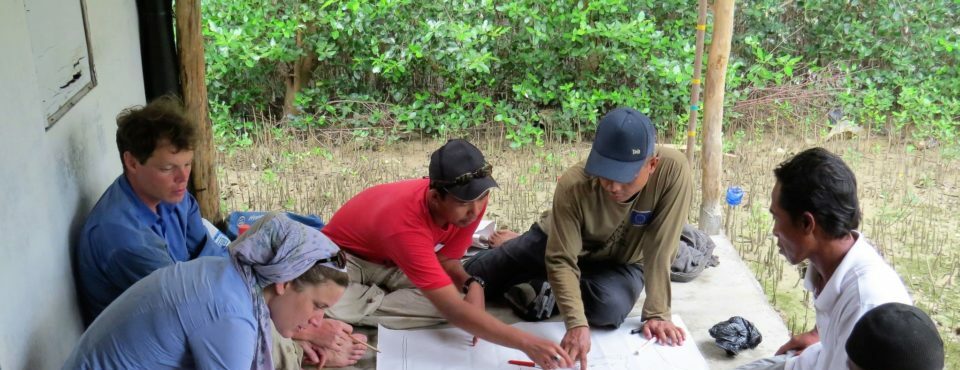
Building with Nature : Stories of Change
-
Coastal resilience
-
Coastal wetland conservation
The Stories of Change are accounts from women and men aquaculture farmers on how the Bio-rights mechanism used in the Building with Nature Indonesia programme has impacted their lives, both at a personal and community level.
Building with Nature is an ecosystem-based approach that uses a combination of smart engineering, ecological rehabilitation and sustainable land use to achieve resilient ecosystems. Bio-rights is a financial incentive mechanism that reconciles livelihoods and environmental conservation objectives by providing microcredit to improve farmers’ livelihoods in return for their active participation in achieving conservation goals. The microcredit is converted into grants upon successful delivery of the conservation activities. Combining Building with Nature with Bio-rights allows integration of ecosystem sustainability and poverty reduction goals. This combination was adopted to guide coastal restoration in Demak district of the north coast of Java.
The Bio-Rights mechanism used in the Building with Nature Indonesia programme in Demak was comprised of four main components.
- In the first component of the programme, ten well-training community groups from nine villages were formed through a comprehensive preparation and planning process.
- The second component involved a range of capacity and trust-building initiatives, with a focus on mangrove conservation and restoration, income-generating options, group management and the Bio-rights mechanism. Both women and men were given the opportunity to participate.
- In the third component, groups implemented a variety of conservation and livelihood initiatives through Bio-rights contracts. The livelihood activities were conducted by individual farmers as well as community groups. They focused on low external input sustainable aquaculture (LEISA). Aquaculture involves the cultivation of fish, shellfish and other organisms in water environments.
- The fourth component, sustainability, focused on sustaining mangrove restoration and livelihood improvements beyond the life of the programme.
The main strategies were the integration of mangrove conservation measures into village coastal regulations, and operational community groups to lead and safeguard village mangrove conservation. All of the community groups joined forces to establish the Bintoro Forum, with the aim of collectively sustaining the results of the programme and promoting them to other areas. This includes policy advocacy to promote the enforcement of mangrove and coastal regulations.
Read our stories here –
- Becoming a Leader Through Learning About Mangroves
- The Key Role of Women in Environmental and Mangrove Conservation
- Healthier Mangroves, Improved Income
- Protecting Mangroves Through Village Regulation
- Improved Standard of Living Due to Environmentally Friendly Aquaculture
- Collective Action to Address Mangrove Degradation
